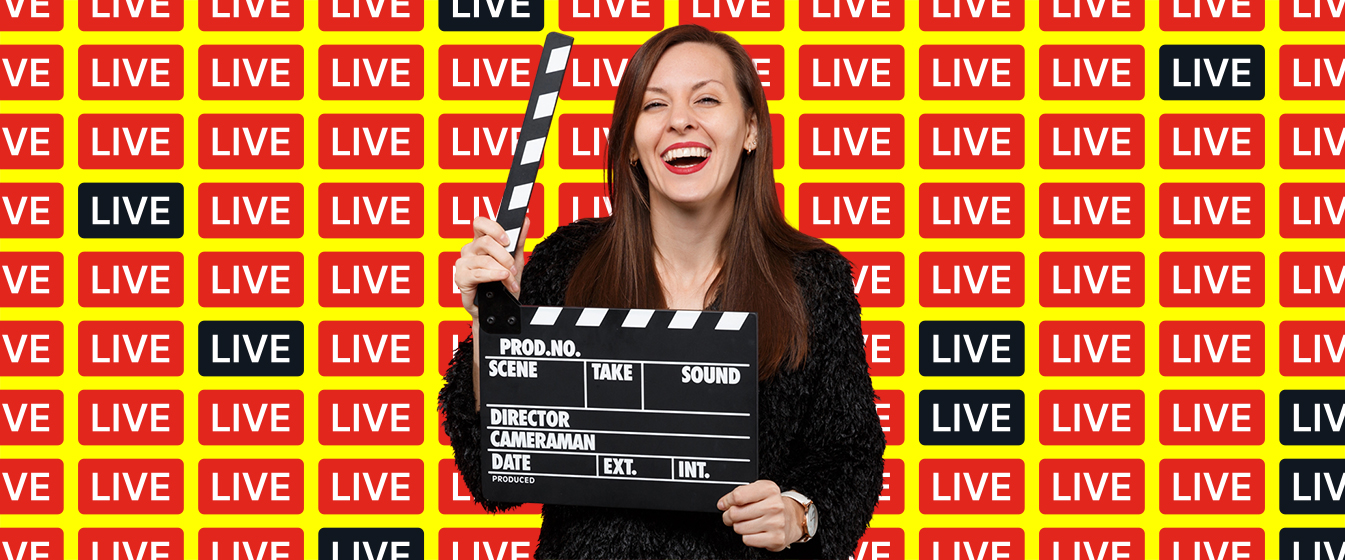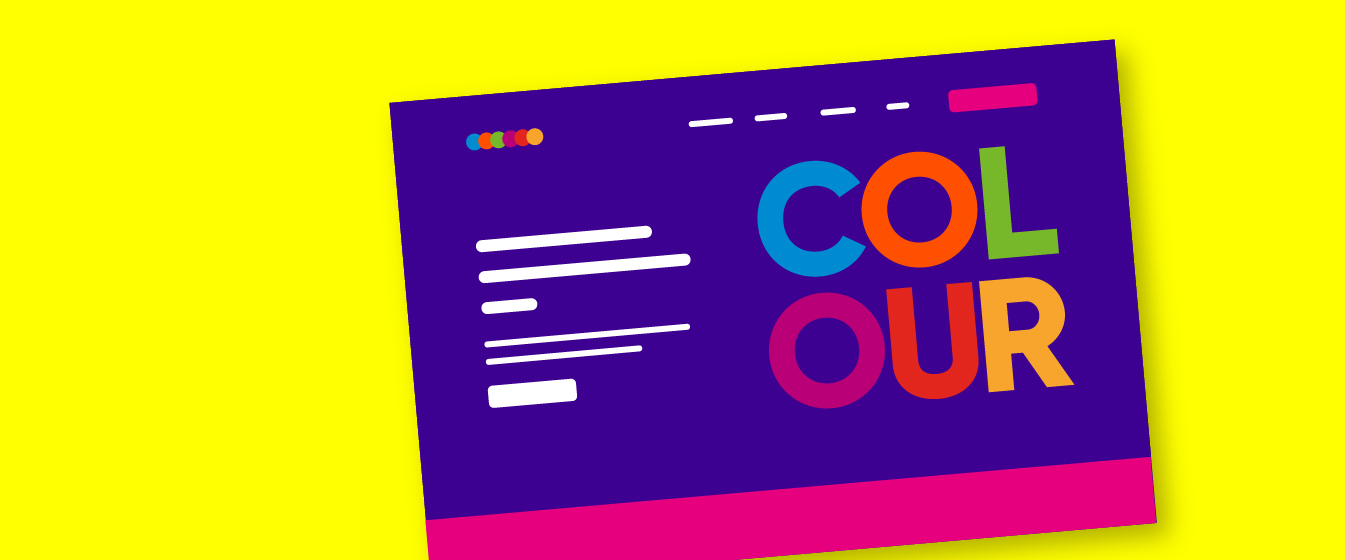Blog: Event marketing
Six ways your CRM should be helping you run better events
18 October 2022 minute read

Whether you run events for commercial gain, as a corporate marketing channel or for good old-fashioned knowledge exchange, trying to do it without a deeply integrated CRM is like trying to hammer nails into wood using a Mars Bar.
If you manage corporate events or conferences as part of your company’s marketing or business development functions, chances are, you’ll already have an enterprise-grade CRM that your sales and marketing colleagues use to manage every interaction they have with existing and potential clients.
If your organisation doesn’t use a CRM, trust us, you need one. Either way though, the magic of a CRM is entirely bound up in how deeply and intelligently it’s integrated into the rest of your event management and marketing stack.
That’s what we’re going to look at in this post.
What exactly do we mean by CRM?
CRM, of course, stands for Customer Relationship Management. Simply put, CRM software helps a company manage its relationship with customers and potential customers. It contains a customer’s contact details, preferences, transaction history, and even communication history.
Most CRM software also comes with a multitude of other features that can help you track your sales, manage leads, gather valuable analytics, and engage with customers more effectively on a daily basis.
These days 99% of CRM software is cloud-based rather than locally deployed. If your organisation already uses an enterprise CRM across the business (like Salesforce, Dynamics, Zoho etc) you’ll want to focus on achieving the right integration and automation triggers between your event platform and that CRM.
If, however, your organisation does not have an enterprise CRM, you might find you can get the tools you need as part of the right event platform. Be careful though! Most platforms offer little more than a glorified contact database. And what we’re discussing today goes way beyond that.
OK. My events are pretty great already. Why do I need a CRM?
Events are a hugely people-centric business. The more you know about your customers and clients, the more you can personalise your events (and your marketing communications) for them. And if you’re not personalising your event offer these days, you’re in trouble.
Think about your most valuable assets. They’re all people, aren’t they? They are your attendees; past attendees; prospective attendees. They’re your speakers; subject experts; sponsors and exhibitors. Your volunteers; partners and suppliers.
The right CRM system, correctly mapped to your registration, email and on-site management tools can quickly and efficiently track, store, and retrieve virtually every scrap of information you could possibly need to know about your attendees and other stakeholders. Everything from their contact information to their demographic details to their personal preferences can be stored, analysed and leveraged.
At the same time, built-in productivity tools like task assignment, automatic reminders and timelines make it easy to keep everyone on the same page, manage follow-ups and nurture prospects at the right time.
So without further ado, here’s our hot take on the six most valuable things your CRM should be doing to support your event management and marketing.
1 Run your events from a single source of truth
You’ll be conducting a variety of events every year, and, over time, it’ll become more and more difficult to keep a record of all attendees. Not only that, all that information also has to be accurate, accessible, and up-to-date. By syncing your registration data to your CRM software you can automatically import all attendee details into your CRM account.
When an existing contact provides new information about themselves on your registration form, their CRM record should get updated automatically. When someone totally new registers, a fresh CRM record should get created for your approval.
Your CRM should be able to dynamically match new people to existing organisations to avoid duplicate record cards. One single set of accurate records should drive everything and let you visualise everything you know about a contact in one screen.
If you’re still spending hours copying and pasting invite lists and attendee lists in and out of your database (or a bunch of Excel sheets) you’re not just wasting time, you’re asking for errors.

2 Automate tasks and optimise resources
Running better events than the competition is all about using your time and resources better than they do. Every hour your team doesn’t spend on dreary, repetitive time-consuming admin is an hour they can spend working on content, being creative and building relationships with stakeholders.
That’s easy to say, and tough to do. Because events invariably entail a bunch of creating and updating guest lists, sending out invitations, following up with people and keeping track of speakers, sponsors and vendors. And this is where deeply integrated event CRM software comes into its own. By automating mundane tasks, you can focus on the important ones like brainstorming ideas, inviting speakers, or getting in touch with sponsors.
Your CRM should be able to pass data between your registration, email marketing, onsite, virtual and other event tech tools, based on pre-set rules and triggers. It should also be able to talk with your accounting software and even productivity tools like Slack – so you can understand what’s going on with your events without having to dig for information like it was 1992.
3 Run personalised email campaigns
Different people attend your events for different reasons. When you deploy segmentation in your marketing you give more attendees more compelling reasons to register for the same event. Of course, to do this you need to group your customer base into segments based on different characteristics and target them individually with differentiated massaging.
The right CRM makes it easy to create segmented prospect lists (all the data is already there) and to drive separate email campaigns with personalised and relevant messages. According to a study we looked at by Demand Gen Report, personalised email campaigns increase clickthrough rates by at least 14%. So, by going personal with your campaigns, you can be assured that more people are actually opening your mails, reading them and clicking through to your event site.
You can also target attendees and run email campaigns based on geolocation or A/B test campaigns if your CRM software supports those features.

4 Manage leads
It would be great if everyone we emailed an invitation to just signed up to our event. But they don’t. Attendees have to be pursued, coaxed and converted. And good luck doing that without a CRM.
When it comes to lead management, nothing beats a well configured CRM. It empowers you to invite your existing leads to your event, add new attendees as leads, define leads, and measure how successful an event was in acquiring new leads.
Know whether you’re targeting someone as a prospective attendee, exhibitor, sponsor or speaker.
Prioritise your follow-up efforts by focusing on the prospects most likely to convert using automatic, engagement-based lead-scoring (how many of your emails have they opened, how many links have they clicked etc.).
5 Enhance the attendee experience
You’ve collected information about your attendees, organised it, and even made detailed profiles for each attendee. Now it’s time to study it. Get a sense of their preferences, their needs, and their expectations for your event. Which sessions got the best attendance? Which got the most engagement?
Then use this information to give your customers an experience that surpasses their expectations. Maximise the personal touches – make attendees feel special and create customised itineraries for them. If you’ve got sponsors, loyal customers, or repeat attendees at the event, you can do something special for them as a way of recognising their support.
However you use it, the important thing here is to make the most of the data you have access to and not let it go to waste.
6 Get a full picture of your ROI
Your event was a success. You know it, your audience knows it. Chances are even your boss knows it. But can you tell exactly why it was a success? And can you track the value of that success through to deeper engagement and actual sales within the company?
Your CRM should be able to show you the engagement history of each converted attendee, so you can understand what you really got from any advertising spend, paid social media, rented lists, contra-agreements – the whole nine yards.
If you’re using events as one of multiple marketing channels, your CRM should know which deals were closed as a direct result of your event, as opposed to other touchpoints or routes into your sales team.
You can get as granular as you want with the details – from the amount spent on marketing your event on Facebook to how many attendees asked for the vegan meal. It’ll all be there. You can use these insights to make your next event an even bigger success and get every marketing dollar working harder towards your goals.
Nearly done now
And yet, all we’ve done here is scratch the surface of what you can do for your events with the right CRM. Based on the capabilities of the CRM tool you’ve chosen to integrate your event management software with, you can do anything from forecasting the success of your events to creating pipeline activities to monitor the progress of your attendees, sponsors, and prospects.
But wait!
One word of caution. Enterprise CRMs can be both costly, and hard to implement. That’s because they’re designed to handle pretty much any industry and sales process you could imagine. Think about selling someone a rollercoaster. I bet that’s pretty complicated. Whereas ham? Probably quite different. Salesforce has to do both, so there’s a lot of power there, 90% of which you’ll never need.
We built our own event-specific CRM which sits at the heart of AttendZen – so you can do everything in this blog post (and plenty more) without any extra cost or hard work.
But we also make it easy to integrate our event platform with all the big enterprise CRMs out there, because if that’s what your organisation runs on, that’s what your events should mesh with.
So if your CRM isn’t supporting your events as well as it might, talk to your colleagues in marketing operations (if you’re lucky enough to have those!) or ask your event tech vendor about unlocking more features.
Or if you want, reach out to us and we’d be happy to share what we know about this stuff – both outside and inside our own platform.
Time to put down the Mars Bar and pick up a hammer.



